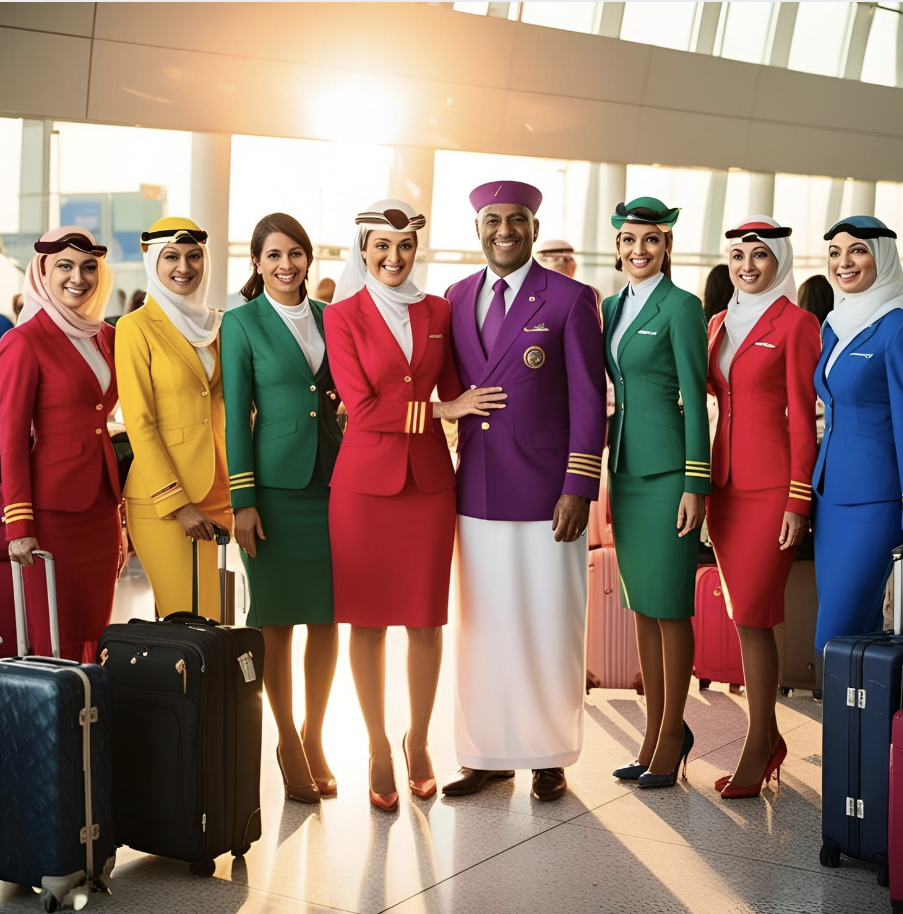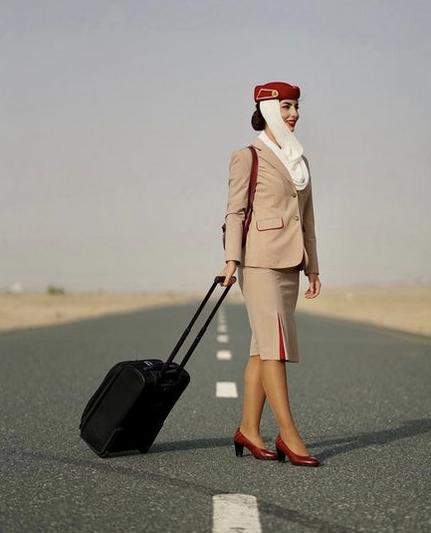
Airline Commander and Crew Mentor, Qrewmentor helps and guides crew members to access jobs with honesty and professionalism.

Middle East airlines have long been regarded as some of the most prestigious carriers in the aviation industry. With their state-of-the-art fleets, world-class service, and attractive employment packages, these airlines constantly attract aviation professionals from all over the world.
However, they also experience a significant turnover rate, with many employees leaving after a few years. So, why is there such a continuous cycle of hiring and leaving?
Let’s explore the key factors behind both trends.
Why Middle East Airlines Are Always Hiring?
Great City Lifestyle Major hubs like Dubai, Doha, and Abu Dhabi offer an exciting urban lifestyle, tax-free salaries, and a vibrant social scene.
The promise of living in a world-class city with endless opportunities for leisure and luxury attracts aviation professionals.
Best Layovers Flight attendants and pilots working for Middle East airlines often enjoy layovers in some of the world’s most exotic and sought-after destinations. From New York to Bali, the opportunity to explore the world while getting paid is a major attraction.

Top-Notch Service Reputation Airlines like Emirates, Qatar Airways, and Etihad are known for their exceptional service. Many aviation professionals are drawn to the prestige associated with working for these globally recognized brands.
Latest Aircraft Models Middle East carriers frequently update their fleets with the newest aircraft, such as the Airbus A350 and Boeing 787 Dreamliner. This allows employees to work with cutting-edge aviation technology, a significant incentive for pilots and cabin crew.
Competitive Salary and Benefits While salary ranges vary, Middle East airlines generally offer good to great compensation packages.
In addition, many employees receive housing allowances, transport benefits, and generous travel perks for themselves and their families.

Free or Subsidized Accommodation One of the biggest perks of working for these airlines is the provision of company-sponsored housing, making it easier for expatriates to transition into their new roles without worrying about rent.
Social Media’s Positive Influence Platforms like Instagram and TikTok are filled with aviation influencers showcasing their glamorous travel lifestyle.
These posts often create a highly appealing image of the profession, encouraging more applications from aspiring airline employees.
Why Employees Leave After a Few Years?
Jetlag and Fatigue The constant change in time zones takes a heavy toll on the body. Long-haul flights often result in extreme fatigue, making it difficult to maintain a healthy work-life balance.
Work-Related Stress While the job may appear glamorous, it involves significant stress. Dealing with demanding passengers, maintaining high safety standards, and adhering to strict protocols can be mentally and physically exhausting.
Culture of Reporting Coworkers Many Middle Eastern airlines have a corporate culture where employees are encouraged (or even required) to report any misconduct by their colleagues.
This can create an environment of mistrust, leading to dissatisfaction and resignations.

Long Hours and High Flight Duty Periods Employees often work long hours, including back-to-back flights, long-haul sectors, and minimal rest periods between flights. This can lead to burnout over time.
Culture Clash Many expatriates struggle to adapt to the local culture, strict regulations, and sometimes conservative workplace environments. This cultural adjustment can be difficult for those who come from more liberal backgrounds.
Emotional Reactions Due to Exhaustion The physical and emotional toll of the job sometimes leads to heightened emotions. Many crew members find it difficult to manage stress and fatigue, leading to impulsive decisions to leave.
Social Media’s Negative Influence Just as social media glamorizes the aviation lifestyle, it also highlights the downsides. Many former employees share stories of exhaustion, homesickness, and dissatisfaction, influencing others to rethink their career choices.

Conclusion
Middle East airlines will continue to attract new talent due to their strong brand reputation, attractive employment benefits, and luxury travel lifestyle.
However, the challenges of jetlag, stress, workplace culture, and social media’s dual influence contribute to a high turnover rate.
While some employees thrive in this environment, others find it unsustainable in the long run.
Ultimately, joining a Middle East airline can be a rewarding experience, but it requires a deep understanding of both the benefits and challenges that come with the job.
Choose wisely
Meanwhile, may you find peaceful skies
Enrique. QrewMentor Team

Subscribe to our blog and stay up to date with what’s happening at qrewmentor.com
